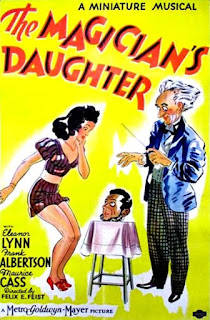Bertram Otto: Fake Chinese pick-pocket magician a hit with frontline troops
Ming Chow (translated as 'The Light-fingered One') was a fabulous pickpocket-comedy magician. In real-life, he was Bertram Otto, a British performer and one of the most successful and highly paid after-dinner entertainers in London.
With the onset of World War Two, Bertie Otto signed up with the Entertainment National Service Association, known as E.N.S.A. This was a wartime organisation established to provide entertainment to the British armed forces, at home and abroad. He was appointed as the manager of the Lucky Dip concert party and put in charge of group of eight or nine fellow performers.
"Bertie was an excellent manager, very responsible and sensitive, despite being in great discomfort due to stomach ulcers. He spoke seven languages which was incredibly useful on our travels," recalled Joy Tudor, a singer-dancer with the group.
Lucky Dip sailed in a KMF convoy from Liverpool to Algiers in 1942. "We had a naval escort and at times we were in danger from enemy submarines. There were depth charge attacks and the noise was terrific; the ship was rocking violently with the backwash from the explosions. We were lucky not to be attacked," said Tudor.
Along with singers, the concert party included dancers, comics, a living marionettes act, and a pianist. The main comic was Syd Crossley, who was the original partner of Stan Laurel, from the famous Laurel & Hardy double-act.
The show toured across North Africa, playing shows at bases along the coastline and down into the desert. After going across North Africa, the show headed over to Sicily, which had been captured by the Allies in August 1943, then into Italy as the fighting moved north.
Joy Tudor later reported: "Our company used to play to troops not far from the front lines. We would be transported in to do the show and chat to the boys afterwards and then we would be transported out again further back, to our base. Sometimes, especially in Italy, we were far enough forward to be within reach of gunfire which on one occasion was especially hair-raising. We went to play to the troops at a fuel depot. At many of the places we played, we had a make-shift stage. At the fuel dump, they used the most handy thing — jerry cans of petrol! Our stage was some boards supported on the jerry cans full of fuel and we were within reach of enemy fire. That made for a very lively show. Fortunately, the enemy must have been having some time off, as we safely performed the show and went back to our camp. However, on our way home, we did hear the crump of gunfire and explosions so we'd left with not much time to spare."
At the end of the tour in Italy in 1944, the Lucky Dip performers headed back to Cairo to prepare and practice a new show.
After the war, Otto toured the Lucky Dip show around the U.K. for civilian audiences. He became one of the most successful and highly-paid after-dinner entertainers in London, as his alter ego Ming Chow. Otto made several appearances on B.B.C. TV and while he kept performing for most of his life, he also found success with one of his other interests - model railways.

Not to be confused with Otto Bertram, the Luftwaffe ‘Fighter Ace’!









Comments
Post a Comment